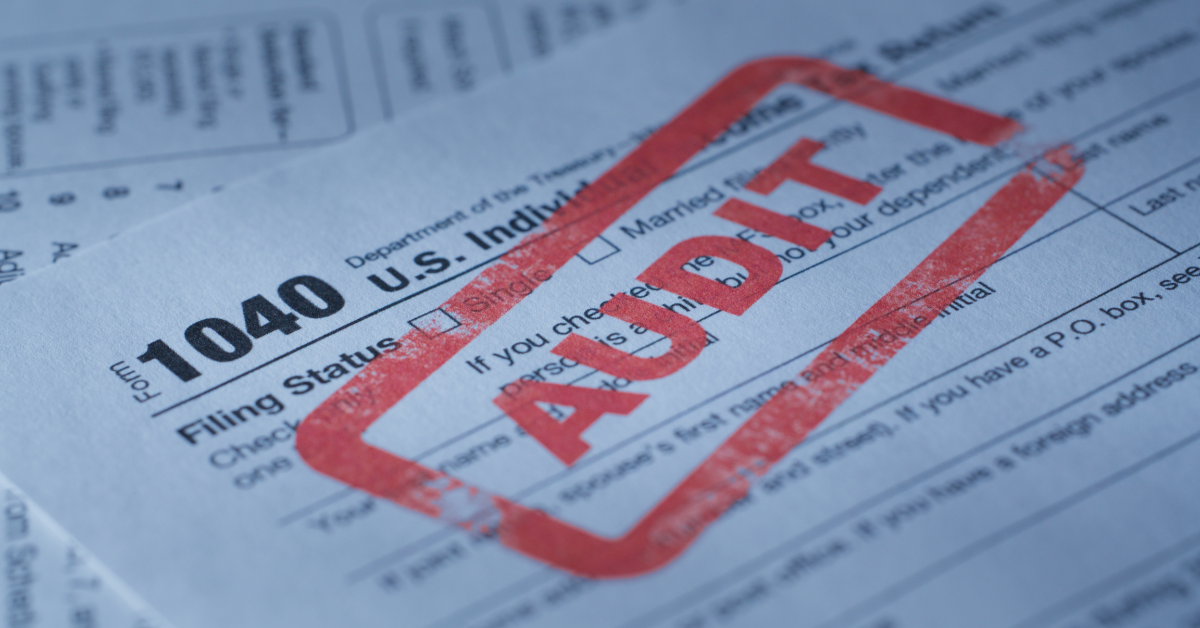Being on the receiving end of a tax audit can be a daunting and scary prospect. If you find yourself in this situation, it’s important to keep in mind that it doesn’t necessarily mean that you’ve done something wrong. In this article, we’ll cover the basics of IRS tax audits how to prepare and how professional tax services can help.
What is a Tax Audit?
When the IRS conducts a tax audit, they are looking closely at your tax return because they suspect it might contain errors that need to be corrected. There are three types of audits:
- Correspondence audit: this type of audit happens through the mail. It’s the most common type of audit and is designed to address simple errors that can be resolved through additional documents or clarification regarding specific items on your return.
- Office audit: This type of audit happens in a local IRS office. You will be asked to bring documentation with you for review.
- Field audit: In this type of audit, the IRS agent travels to you and conducts an audit in your home, business, or tax professional’s office. This is the most thorough type of audit.
The IRS will notify you of an audit via mail. They have three years after you file a return to conduct an audit. It’s important to remember the results of the audit are not final and you have the right to appeal decisions.
How to Prepare for A Tax Audit
The key to facing any audit is preparation. Taking time to understand the process and the scope of the audit will help you stay calm and enable the audit to proceed smoothly. Here are some of our top tips on how to prepare:
- Understand the extent of the audit: Mail audits don’t typically address the entire return while field audits are much more comprehensive. It’s important to start out by understanding exactly what information the IRS is looking for.
- Review your tax returns: It’s a good idea to thoroughly review your tax returns, making note of discrepancies or anything unusual that the IRS might have questions about. This will help you answer the IRS’s questions quickly and efficiently.
- Gather your records: The IRS will notify you about what records or documents they would like you to provide. It’s a good idea to gather these and any other related documents as soon as possible and keep them together.
- Get organized: One of the best ways to keep an audit process operating smoothly is to be as organized as you can. Once you’ve gathered your documents, be sure to record and organize them carefully so you know where they are and how they relate to the IRS requests.
- Be timely: Prepare your responses, advocate for yourself and respond to all IRS requests by the deadline. The IRS will either close your case or propose adjustments. If you disagree with their findings, you have 30 days to appeal.
How a Tax Professional Can Help
The top way to prepare for an audit and ensure a smooth resolution is to engage a tax professional. Tax audits can be stressful, particularly if you haven’t experienced one before. Tax professionals render professional tax services day-in and day-out and have a deep understanding of the intricate US tax system. Here are ways they can help you in an audit.
A tax professional can be incredibly valuable during a tax audit. Here are several ways they can assist you:
- Expert Guidance and Representation: Tax professionals, like our expert Roanoke CPAs, have in-depth knowledge of tax laws and regulations. They can walk you through the specifics of your case and help you comply with all relevant laws. When you work with a tax professional you won’t have to face the tax authorities on your own. Instead, they can represent you in everything from handling communications, to taking meetings on your behalf. This reduces your stress and give you peace of mind that the audit is handled professionally.
- Document Preparation and Organization: Gathering your documents can be overwhelming but a tax professional can provide practical support and assurance that the job is done right. They’ll help you collect and organize all necessary documents. Then they’ll review your records for accuracy and completeness, identifying any potential issues before presenting them to the auditor.
- Audit Strategy and Planning: Tax experts like CPAs can help you craft a strategy for the audit, help you best present your information and address any potential issues. Thanks to their wealth of experience, they can anticipate the questions an auditor might ask so you can answer them confidently.
Prevent Tax Issues with Neely’s Accounting Services
Working with a tax professional is always a great idea. From reducing stress, streamlining tax returns, or supporting you through an audit, Neely’s Accounting Services is here to help.
Our expert Roanoke CPAS can provide tax planning advice to help you avoid issues and provide ongoing support for the tax season and beyond. Contact us for tax support today.
